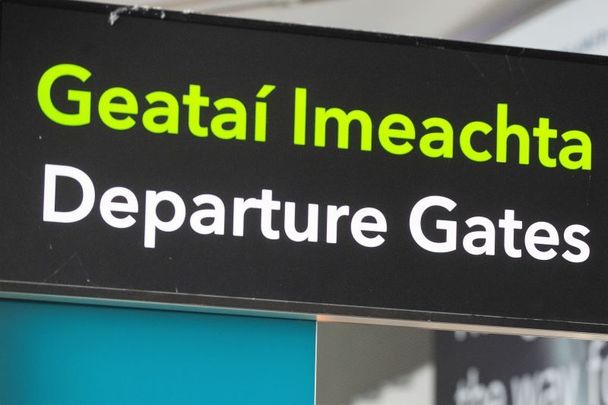Taoiseach Micheál Martin today announced a number of relaxations to the current public health restrictions across the Republic of Ireland.
Most notably, the Taoiseach confirmed that non-essential travel can begin again from July 19 as the Republic of Ireland will "broadly align itself to the EU approach to non-essential travel into the EU from third countries."
As it stands, Ireland's Department of Foreign Affairs is advising against all non-essential international travel. People can be fined €2000 for unnecessary travel abroad from the Republic of Ireland.
The Taoiseach also confirmed in his address on Friday that a pilot programme for live events will begin on June 7, and indoor services at bars and restaurants can resume on July 5.
WATCH: Taoiseach announcement on the further reopening of society and the economy during the summer months. | Read more: https://t.co/r7pk610qt9 https://t.co/Gi5CuX8iDO
— RTÉ News (@rtenews) May 28, 2021
Ireland's Department of Health and Department of the Taoiseach today confirmed the following changes will come into effect in the coming months:
From June 2:
- Accommodation services (hotels, B&Bs, hostels, and self-catering): Can reopen with services restricted to overnight guests
From June 7:
- Visitors to your home: You can have visitors from 1 other household inside your home for unvaccinated households
- Weddings: 25 people can attend a wedding celebration or reception
- Sport: Outdoor sports matches can take place
- Gyms and training: Gyms, swimming pools, leisure centres can reopen for individual training only
- Restaurants and bars: Outdoor services can reopen
- Driver Theory tests: 25,000 tests per month to take place
- Organised outdoor events: Maximum of 100 attendees for the majority of venues. Maximum of 200 for outdoor venues with a minimum accredited capacity of 5,000
- Live events: Pilot events to take place
From July 5 (subject to the public health situation at the time):
- Visitors to your home: You can have visitors from up to 3 other households inside your home
- Weddings: 50 people can attend a wedding celebration or reception
- Organised indoor events: Maximum of 50 attendees at the majority of venues. Maximum of 100 can attend events in larger venues with strict public health measures in place
- Organised outdoor events: Maximum of 200 attendees for the majority of venues. Maximum of 500 for outdoor venues with a minimum accredited capacity of 5,000
- Personal fitness: Indoor training, exercise and dance activities can recommence in pods of up to 6
- Bars and restaurants: Indoor services can resume
From July 19 (subject to the public health situation at the time):
- International travel: Current government advice is to avoid non-essential international travel. Depending on the prevailing public health situation at the time, Ireland will operate the EU Digital COVID Certificate (DCC) for travel originating within the EU/EEA (More information below.)
Under consideration for August
- Indoor and outdoor events: Further increases in the numbers permitted
- Wedding: Maximum attendance at wedding receptions and celebrations to increase to 100
- Public transport: To return to full capacity
Regulations surrounding non-essential international travel from the Republic of Ireland:
The following information was also published by Ireland's Department of Health today, May 28:
Passengers arriving into Ireland from EU/EEA
From July 19, subject to the prevailing public health situation, Ireland will operate the EU Digital COVID Certificate (DCC) for travel originating within the EU/EEA.
A DCC will show if a passenger:
- is vaccinated against COVID-19;
- has recovered from COVID-19 in the past 9 months; or
- has a negative test result taken no more than 72 hours before arrival
Passengers arriving into Ireland with a DCC will not have to undergo quarantine.
However, passengers with a DCC based on a non-PCR test (for example, antigen), or those arriving without a DCC, will require proof of a negative RT-PCR test taken no more than 72 hours before arrival.
Children aged between 7 and 18 who have not been vaccinated must also have a negative PCR test.
A passenger who has been in a non-EU/EEA country in the 14 days prior to arrival into Ireland will be subject to the rules applying to that country (see below).
All passengers will be advised to observe public health restrictions and to present for post-arrival testing if they develop symptoms of COVID-19.
Passengers arriving into Ireland from outside EU/EEA
From July 19, Ireland will also broadly align itself to the EU approach to non-essential travel into the EU from third countries.
To protect its citizens against importation of variants, an ‘emergency brake’ mechanism will be coordinated at EU level to react swiftly to the emergence of a variant of concern or variant of interest.
Government advice will be to avoid travel to a country where the emergency brake has been applied.
Scenario One – journey originates in a country to which the EU has not applied an ‘Emergency Brake’
If passenger has valid proof of vaccination, no travel-related testing or quarantine will be necessary.
If passenger does not have valid proof of vaccination, they will need to:
- present evidence of a negative PCR test result within 72 hours prior to arrival into the country
- self-quarantine
- undergo post-arrival testing - this will be provided through the HSE
Scenario 2 – journey originates in a country to which the EU has applied an ‘Emergency Brake’
If passenger has valid proof of vaccination, they will need to:
- produce a negative result from a PCR test taken no more than 72 hours before arrival
- undergo self-quarantine
- undergo post-arrival testing - this will be provided through the HSE
If passenger does not have valid proof of vaccination, they will need to:
- produce evidence of a negative result from a PCR test undertaken no more than 72 hours before arrival
- undergo mandatory hotel quarantine
- undergo post-arrival testing
Travel to UK and USA
The approach to travel outside the EU/EEA will also apply to travel to and from Great Britain and the US.
There will be no restrictions on travel to or from Northern Ireland. Passengers arriving from via Northern Ireland who have been overseas in the 14 days prior to arrival in Ireland, must also comply with these restrictions.
(*Editor's Note: As of May 28, the US is still suspending entry of foreign nationals who were physically present in the UK [including Northern Ireland] and / or the Republic of Ireland, among other countries. These restrictions do not apply to American citizens, legal permanent residents, most immediate family members of US citizens, and other individuals who are identified in Presidential Proclamation 10143.)
Digital COVID Certificate (DCC)
The EU Digital COVID Certificate is designed to facilitate the safe free movement of citizens within the EU during the COVID-19 pandemic. It will be valid in all EU Member States, including Ireland.
The certificate – in digital or paper format – is proof that a person has either:
- been vaccinated against COVID-19;
- received a negative test result; or
- recovered from COVID-19 in the last 9 months
It is important to note that the EU Digital COVID Certificate is not a travel document. The possession of an EU Digital COVID Certificate will not be a precondition to travel.
Individual Member States will determine how the DCC will be used as part of national public health measures.
Countries that will use the Digital COVID Certificate
The system will be used throughout the EU and in Norway, Switzerland, Liechtenstein, and Iceland.

Are you planning a vacation in Ireland? Looking for advice or want to share some great memories? Join our Irish travel Facebook group.




Comments